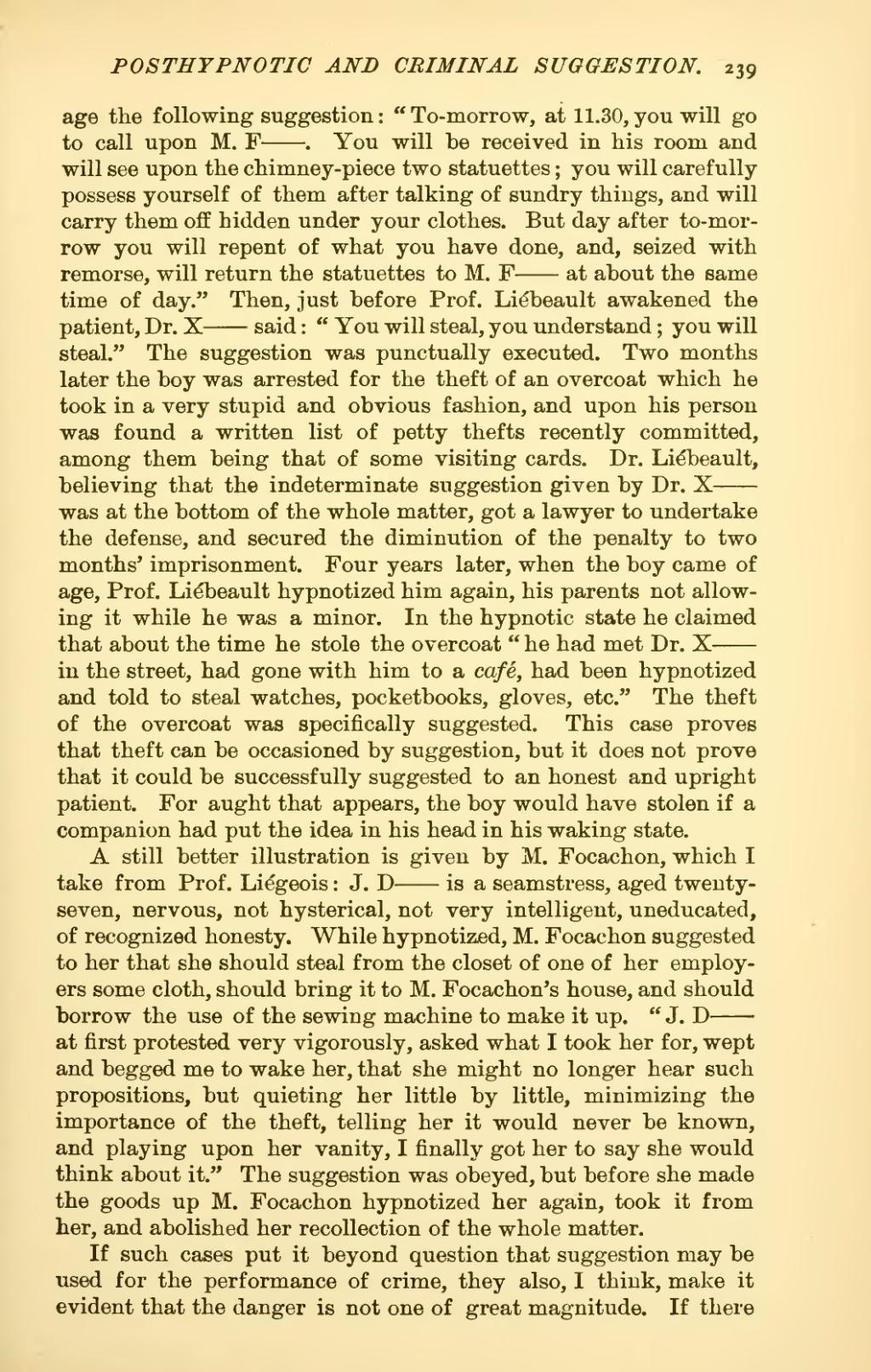age the following suggestion: "To-morrow, at 11.30, you will go to call upon M. F. You will be received in his room and will see upon the chimney-piece two statuettes; you will carefully possess yourself of them after talking of sundry things, and will carry them off hidden under your clothes. But day after to-morrow you will repent of what you have done, and, seized with remorse, will return the statuettes to M. F at about the same time of day." Then, just before Prof. Liébeault awakened the patient. Dr. X said: "You will steal, you understand; you will steal." The suggestion was punctually executed. Two months later the boy was arrested for the theft of an overcoat which he took in a very stupid and obvious fashion, and upon his person was found a written list of petty thefts recently committed, among them being that of some visiting cards. Dr. Liébeault, believing that the indeterminate suggestion given by Dr. X was at the bottom of the whole matter, got a lawyer to undertake the defense, and secured the diminution of the penalty to two months' imprisonment. Four years later, when the boy came of age. Prof. Liébeault hypnotized him again, his parents not allowing it while he was a minor. In the hypnotic state he claimed that about the time he stole the overcoat "he had met Dr. X in the street, had gone with him to a café, had been hypnotized and told to steal watches, pocketbooks, gloves, etc." The theft of the overcoat was specifically suggested. This case proves that theft can be occasioned by suggestion, but it does not prove that it could be successfully suggested to an honest and upright patient. For aught that appears, the boy would have stolen if a companion had put the idea in his head in his waking state.
A still better illustration is given by M. Focachon, which I take from Prof. Liégeois: J. D is a seamstress, aged twentyseven, nervous, not hysterical, not very intelligent, uneducated, of recognized honesty. While hypnotized, M. Focachon suggested to her that she should steal from the closet of one of her employers some cloth, should bring it to M. Focachon's house, and should borrow the use of the sewing machine to make it up. "J. D at first protested very vigorously, asked what I took her for, wept and begged me to wake her, that she might no longer hear such propositions, but quieting her little by little, minimizing the importance of the theft, telling her it would never be known, and playing upon her vanity, I finally got her to say she would think about it." The suggestion was obeyed, but before she made the goods up M. Focachon hypnotized her again, took it from her, and abolished her recollection of the whole matter.
If such cases put it beyond question that suggestion may be used for the performance of crime, they also, I think, make it evident that the danger is not one of great magnitude. If there

